Third-time lucky? For the first time in its history, Jacobabad hopes to get tap water
For the last four decades, the city of 350,000 people has been getting water on donkey carts
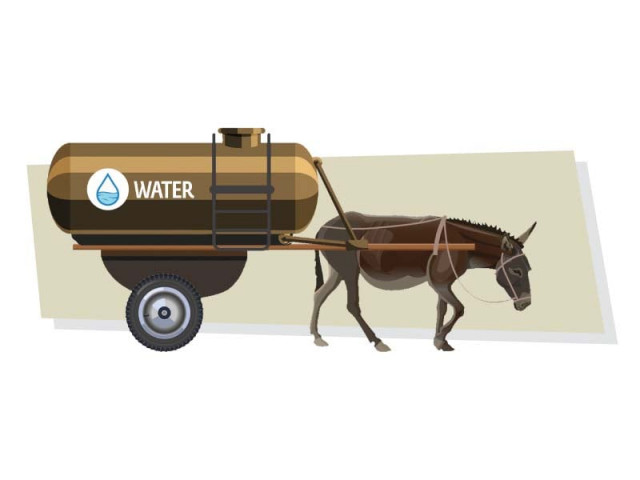
ILLUSTRATION: MOHSIN ALAM
For the last four decades, residents of Jacobabad have never received piped water. The city comprises around 30,000 housing units and boasts a population of around 350,000 people. Each family has to spend approximately Rs1,000 to procure water for drinking and other domestic uses.
Quarter of world's population facing extreme water stress
Interestingly, the city is located hardly 10 kilometres from the Kirthar Canal, where water flows for almost 11 months a year. Under an earlier scheme, the water was supposed to be stored in natural lagoons from where the residents of Jacobabad could get it through pipes. The scheme, however, remained on paper.
Donkey carts and army
The people of Jacobabad believe in two things - water supplied on donkey carts or fauji government. “For the first time, during [General] Musharraf’s tenure, a water supply scheme was sanctioned,” recalled an elderly citizen, Nawaz Solangi. Though the scheme was approved, local politicians never bothered to implement it or make it functional.
Another citizen, Abul Nasir, said that the underground water in Jacobabad, Shikarpur and upper parts of the province was completely arsenic. “The water in our city cannot be consumed even by an animal,” he remarked.
The donkey carts fetch water from the outskirts and sell it to citizens at a rate of Re1 per litre. Those who can’t afford it, consume the water without adding any chlorine or boiling it. “It is a basic right that the state must provide, but unfortunately, the people in my city have to purchase it,” said Nasir, adding that people will only start spending money on other basic necessities such as health and education, if the government started supplying water to their homes.
New Scheme
Earlier, the government has tried, on two different occasions, to set up proper water supply system for Jacobabad, but has failed miserably. Officials of the city’s municipality said that 45 acres of land for a water supply scheme was allotted in the 1980s and another 45 acres were allotted in the 1990s, where water lagoons were to be established. “It did not work out as most of the pipelines were either punctured or deliberately damaged by the residents,” a municipal officer, speaking on condition of anonymity, told The Express Tribune.
The official said that another 55 acres of land has been allotted for the new scheme that is being funded and supported technically by the United States Agency for International Development (USAID).
At least six overhead water tanks have been constructed, which will supply purified, chlorinated and laboratory-tested water to the entire population of Jacobabad. “It will be Sindh’s first city that will have a properly designed piped-water supply system,” the official claimed.
On the other hand, Jacobabad Municipal Committee Chairman Mir Abbas Khan Jakhrani said that the city’s entire population was dependent on donkey carts for the supply of water. “The ground water is arsenic and unfortunately, like other cities, we don’t have any functional piped water system,” he said. According to another official, who has been working with the community far the last two years, infrastructure stretching 56kms has been developed across the city. “It starts from the water tank and ends up the doorstep of a household,” he shared. “At least 8,000 households will be supplied water from one overhead water tank,” he added.
He added, however, that the system would have to be owned by the residents. “It won’t work unless the residents own the system,” said the official. He said that Mohalla Committees have been formed to maintain the newly-established system.
Billing system
Karachi water crisis to worsen over coming days
If the new system works at its optimum, Jacobabad will be the first city in Sindh where every household will be paying water bills every month. “Initially, we plan to charge each household Rs300 every month, which is quite reasonable. The water will be tested and purified,” said Jakhrani.
Jakhrani said that for the first one year at least, he and his team would look after the newly established infrastructure and the billing system.
According to Jakhrani, the water supply scheme will be launched by the end of this month.
Published in The Express Tribune, September 4th, 2019.

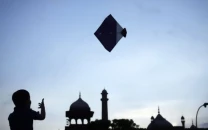
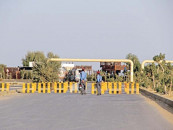


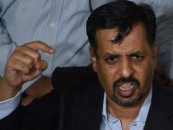


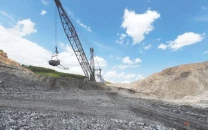
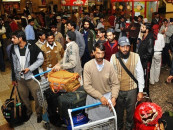








COMMENTS
Comments are moderated and generally will be posted if they are on-topic and not abusive.
For more information, please see our Comments FAQ